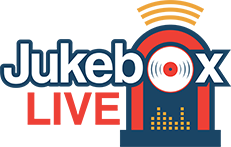Protecting Your Hearing
Let’s Hear it for the Ears
Okay, I'm gonna say it, I'm old and have been abusing my ears playing music since I was 17 years old. I grew up listening (very loudly) to Black Sabbath, Deep Purple, Led Zeppelin, Grand Funk Railroad, and others. I'd put an album on with my over-the-ears headphones and beat on my drums, trying to master the moves of those famous drummers. So now, I'm gonna preach a bit. My hearing is not as good as it should be; Why? Hmmm... you can guess.
So, how do you enjoy music without losing your hearing at a younger age than expected? While researching this conundrum, I found some common sense tips that may be of interest to you, and one tip I'll start doing myself right away.
Okay, so everyone knows there is hearing-loss risk from loud music, but that doesn't mean you can't join your friends at a Rival Sons concert or take a date to your favorite rock club. With some precautions, you can enjoy a live concert and protect your hearing. Here are a few tips to get started.
Earplugs are your friend
Earplugs are the easiest way to protect your hearing. They are affordable, and with musician-grade earplugs, you can still hear all the notes and enjoy the quality of the performance, even with less volume.
Only those ugly-orange spongy kind of earplugs were available to buy in the old days, but now you can find reusable transparent ones, so no one even knows you have earplugs on, and they cost as little as $12 - $40 a pair. Just do a quick search on Amazon for "musician grade ear plugs," and I'm sure you'll find something you like.
Stay in the back and choose outdoor venues
Choosing an outdoor venue, if available, is your best bet because they have much less volume impact than being indoors. In either case, getting the seat right next to the amplifiers or speakers should be avoided. Actually, sitting more towards the middle gives you a better mix of the music and reduces the hearing impact. So, Win-Win.
Give your ears a break
Two solid hours of loud music is tough on the ears, so try to take a break and go out to the lobby or restroom to give your ears a five-minute break. It's a little gift for your ears and you.
If you hear a ringing in your ears after the show is over, that's your clue that your ears have been assaulted; it’s a signal you need to let them heal with a 24-hour sound break. This means avoiding loud sounds as much as you can and turning down the volume on your headphone and car speaker will give your hearing a chance to recover.
Test your hearing
Today, most people don't have a clue what their current hearing health level is. A hearing test is something we usually don't do when we visit our primary doctor. But good news, now there's an app for that. You can use your mobile device and find out the state of your hearing. I tried all the ones on the iTunes store and liked this one from MDHearing the best.
If you want a professional opinion, visit an Audiologist, who is a licensed healthcare professional.
It won't happen to me
Okay, so you say that won't happen to me, but FYI, over 466 million people in the world have hearing loss. Here are some of the most well-known musicians that are experiencing (and dealing with) hearing problems:
Neil Young
Ozzy Osbourne
Phil Collins
Brian Wilson
Eric Clapton
Pete Townshend
Chris Martin
will.i.am
Grimes
Wrapping it up
Okay, I'm done preaching now, but I hope you have learned a couple of things from this that you'll put into practice. For me, using the mobile phone hearing test was very informative. It identified that I've lost significant hearing in the 2,000-8,000 Hz range This just happens to be the frequency my wife speaks in when she tells me her "honey-do" list, and why I can truthfully answer - "I don't think I heard you say that, Dear."

